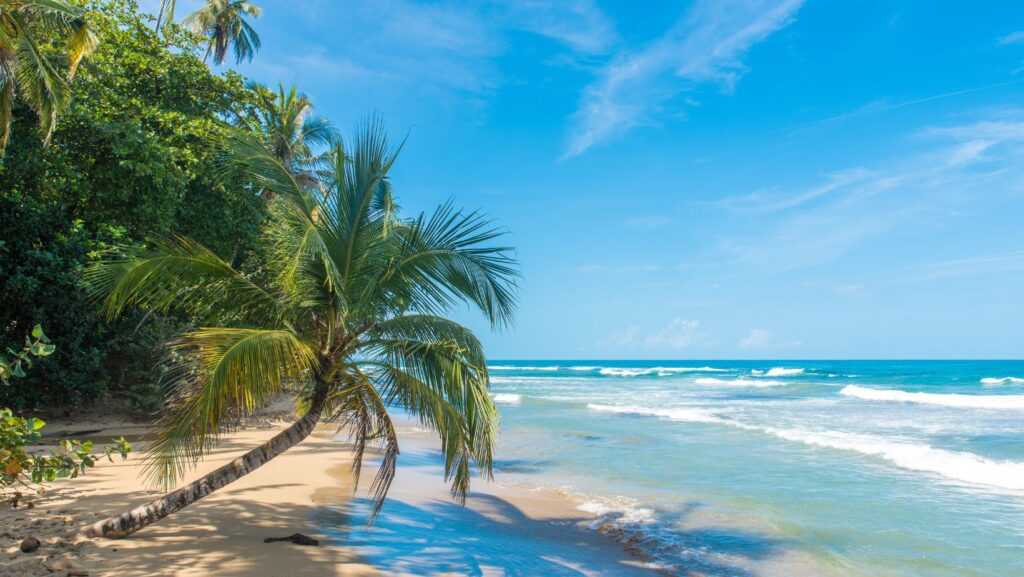Traveling on a budget is achievable with the right strategies. Finding affordable accommodation, utilizing public transport, and exploring free attractions can significantly reduce travel costs. Many savvy travelers have discovered that planning ahead is key to ensuring a memorable experience without breaking the bank.
Understanding how to prioritize spending can lead to unexpected adventures. Choosing local eateries over tourist traps not only saves money but also provides a taste of authentic culture. Additionally, travelers can take advantage of off-peak seasons, allowing for discounts on flights and accommodations.
Budget travel doesn’t mean sacrificing quality experiences. By being resourceful and flexible, they can enjoy their journey while still keeping finances in check. These practical tips can help anyone make the most of their travel experience without overspending.
Planning Your Trip
Effective trip planning is essential for budget travelers. It involves research, timing, and smart decision-making to ensure cost-efficiency.
1. Set a Budget
Establish a clear budget before starting the planning process. This should include expenses for accommodation, food, activities, and transportation.
2. Choose Destinations Wisely
Explore countries or cities known for being budget-friendly. Research local costs to find affordable options. Some regions may offer lower prices on accommodation and food.
3. Flexible Travel Dates
If possible, choose travel dates that are less busy. Traveling during off-peak seasons can lead to substantial savings on flights and accommodations.
4. Money Exchange Tips
Consider currency exchange rates and fees when planning. Avoid exchanging money at airports where rates are often unfavorable.
Use local ATMs for better rates, but check for any withdrawal fees.
5. Use Budget Travel Tools
Leverage apps and websites that track flight prices and compare accommodation options. Tools such as Google Flight Alerts can notify travelers of price drops.
6. Make a Itinerary
Planning an itinerary helps maximize time and savings. Prioritize free or low-cost activities to get the most out of the trip without exceeding budget limits.
By focusing on these aspects, travelers can effectively manage costs while enjoying their adventures.
Transportation
Choosing budget-friendly transportation can significantly impact travel expenses. Here are some effective strategies.
1. Use Public Transport
Public transport is generally cheaper than taxis or rideshares. Buses, trams, and trains often provide extensive coverage in cities, allowing travelers to navigate without overspending.
2. Book in Advance
For long-distance trips, booking train or bus tickets ahead can lead to discounts. Many companies offer lower prices for early purchases.
3. Consider Alternative Airports
Flying into or out of smaller regional airports can be less expensive than using major hubs. This may include additional transport costs to reach the destination, so it should be factored into the overall budget.
4. Ride-Sharing and Carpooling
Services like Uber or Lyft can add up quickly. Opting for carpooling options may reduce costs significantly.
5. Cycle or Walk
In many cities, biking or walking can be an economical way to explore. Renting a bike or using bike-sharing services is often more affordable than public transport.
6. Use Apps for Comparison
Apps and websites allow travelers to compare prices across different transportation methods. This ensures they get the best deal available for their needs.
By implementing these strategies, travelers can manage their transportation costs effectively.
Accommodation
Finding budget-friendly accommodation is crucial for cost-effective travel. Several options can help reduce expenses.
Hostels are popular among travelers looking for affordable stays. They offer dormitory-style rooms, providing an opportunity to meet fellow travelers. Prices typically range from $10 to $50 per night.
Airbnb can also be a more affordable alternative to hotels. Rent a room or an entire apartment, usually at lower rates than traditional hotels. Booking in advance often yields better prices.
Camping is an economical choice for outdoor enthusiasts. Campsites often charge a nominal fee per night, and some locations offer free camping. This option connects travelers with nature while minimizing costs.

House sitting provides a unique way to stay for free. Travelers care for someone’s home and pets in exchange for accommodation. Websites like TrustedHousesitters can connect sitters with homeowners.
Travel during off-peak seasons to find better rates on accommodations. Prices tend to drop significantly when demand is lower.
Consider location carefully. Staying slightly outside tourist areas can save money. Plus, local neighborhoods often offer a more authentic experience.
Finally, use comparison websites to find the best deals. Platforms like Booking.com and Hostelworld allow travelers to compare prices easily.
Eating and Dining
Traveling on a budget does not mean sacrificing good food. There are various strategies to enjoy meals without overspending.
1. Research Local Cuisine:
Try local dishes at affordable street food stalls or markets. These options often provide authentic experiences at a fraction of the cost of restaurants.
2. Utilize Meal Deals:
Look for lunch specials or early bird dinners. Many restaurants offer discounts during off-peak hours.
3. Self-Catering:
Staying in accommodations with kitchen facilities allows for cooking. Shopping at local grocery stores can lead to savings and new culinary experiences.
4. Drink Water:
Instead of purchasing beverages, ask for tap water at restaurants. This simple step reduces costs significantly.
5. Engage with Locals:
Ask residents for dining recommendations. Locals often know the best spots that tourists may overlook.
6. Use Apps:
Download apps that provide deals on food. Many have discounts or offer loyalty points, making dining cheaper.
By applying these strategies, travelers can enjoy diverse meals while managing their budget effectively.
Activities and Entertainment
Traveling on a budget does not mean sacrificing fun. There are many activities that provide enjoyment without a hefty price tag.
Free Attractions: Many cities offer free guided tours, parks, and historical sites. Research local attractions that do not charge entry fees.
Community Events: Check local event calendars for community festivals, markets, and performances. Participating in such events can enhance cultural experiences.
Nature and Outdoors: Exploring national parks, hiking trails, and beaches typically incurs minimal costs. Outdoor activities often provide a fulfilling experience away from crowds.
Public Museums and Galleries: Many museums have free admission days or reduced fees on specific days. Visiting these places allows for the exploration of art and history without spending much.
Discounted Passes: Some cities offer tourist cards that provide discounts on multiple attractions and public transport. This can significantly reduce overall costs.
Volunteer Opportunities: Engaging in volunteer work can offer a unique way to experience a location. Many organizations welcome travelers and provide worthwhile experiences.
Local Cuisine: Dining at street vendors or local markets can be less expensive. Trying inexpensive local dishes contributes to the travel experience.
By being resourceful, travelers can enjoy a variety of activities and entertainment options while staying within budget.
Managing Money and Expenses
Budgeting is essential for any traveler looking to manage their finances effectively. A clear plan allows them to enjoy their trip without financial stress.
1. Set a Daily Budget
Estimate daily costs for accommodation, meals, activities, and transportation. This creates a framework to keep expenses in check.

2. Use a Tracking App
Apps like Mint or Trail Wallet help monitor spending in real-time. They can categorize expenses, making it easy to identify areas where they can cut back.
3. Choose Affordable Accommodation
Opt for hostels, guesthouses, or budget hotels. Platforms like Airbnb often provide economical options that suit various preferences.
4. Eat Like a Local
Dining at local markets or street food stalls can significantly reduce meal costs. They often offer authentic cuisine at lower prices.
5. Utilize Public Transport
Using buses, trams, or trains is more cost-effective than taxis. Many cities offer travel passes for unlimited journeys within a specific timeframe.
6. Prioritize Free Activities
Look for free walking tours, museums with no entry fees, or public events. Many destinations provide free resources to explore without spending.
By implementing these strategies, travelers can manage their money and expenses effectively, ensuring a fulfilling experience within their budget.




